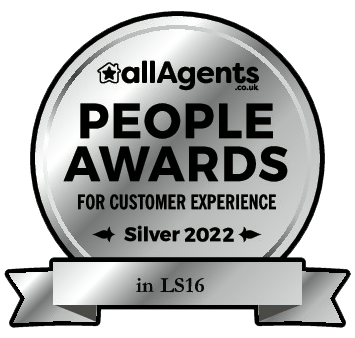It is now quite common for young people looking to purchase a home, and particularly first-time buyers, to receive a contribution towards the deposit from parents or other family members to help with their house purchase – in fact 49% of first time buyers aged under 35 received help from the Bank of Mum and Dad according to research by Legal and General in October 2020. Two thirds of these buyers state that they would not have been able to buy without the help and that on average a sum of £20,000 was being gifted.
First time buyers face significant hurdles, with the rising cost of living, rent and more recently mortgage payments. With the need to provide ever increasing deposits, the Bank of Mum and Dad is now busier than ever and is pretty much becoming one of the biggest mortgage lenders. It is key that parents and their children know what they are doing, their responsibilities - when how and indeed if repayments are to be made.
Here is everything you need to know about bank of Mum and Dad Mortgage options whether it is one of the following
- A financial gift (gifted deposit)
- A loan
- Putting your savings into a linked account
- Acting as a guarantor on a mortgage
- Getting a joint mortgage
Advice for parents – before you get involved in your child’s house purchase, it is strongly advised that you get a financial adviser, who will advise you on how much ‘assistance’ you can afford to give.
The vast majority of parents give their children a gift of cash to boost their borrowing power and make up the shortfall in their deposit so that they can borrow more and/or access a cheaper mortgage deal.Most banks will accept a deposit that has been gifted or partly gifted, but they may ask for written confirmation stating that it is a ‘true gift’ and doesn’t require repaying, firstly, for affordability calculations they will want to know that the money isn’t a loan that requires regular payments, secondly if the property had to, in the worst case scenario be repossessed that you don’t have an interest in the property.
Most lenders would prefer that the gifted deposit was from a close or immediate relative such as a parent, a sibling or a grandparent – you can also receive a gifted deposit from a partner, but in some cases, Aunts, Uncles or friends may not be entertained by lenders.
Children and the person who gifted, won’t have to pay any tax on money gifted immediately, however, further down the line, an inheritance tax bill could be due. Everyone is allowed to give up to £3,000 a year away, and it is immediately exempt from inheritance tax. You can also carry over any unused allowance from the previous year – this means that two parents could gift their child up to £12,000 without inheritance tax being a problem if they hadn’t gifted any money to anyone in previous years – if you want to gift any more, then you could be liable for inheritance tax.
If the person gifting the money was to die within seven years’ it would still be classed as part of their estate for inheritance tax purposes. This means if their estate is worth more than £325,000 including the gift, then up to 40% tax would be due on the excess.
The amount of tax due on the gift decreases as the 7 year’s elapse, how much tax is due will depend
| Years between the gift and death | IHT Tax rate |
| Less than three | 40% |
| Three | 32% |
| Four | 24% |
| Five | 16% |
| Six | 8% |
| Seven or more | 0% |
It may be that you do not want to gift the money for the deposit, but are prepared to lend.
It is relatively easy to set up a loan agreement and this should set out any interest payments and when the loan should be repaid by. This should be made known to the Mortgage Lender (if one is involved in the purchase) as this may have an impact on the mortgage affordability calculation. The loan details should include when it needs to be repaid (ie if the property is sold), what should happen to the money if anyone involved in the loan requires the money back or dies.
Borrowed deposits may often come with ‘strings attached’ and because of this mortgage deals may be restricted by some lenders.
If a gift or lending the money is not possible there are other alternatives which include:-
- Savings as security – there are a few offset mortgage deals which allow for parental saving to be offset against a child or family members mortgage – these are known as Family Offset Mortgages and reduce how much your child would pay, however, you are unable to access your savings until the term is up
- Equity as security – if your child takes on a loan for 100% of the property you can use a proportion of the value of your home as security of up to 25%. If anything goes wrong with the repayments or your child defaults on the mortgage then this could put your own home at risk
- Buy a property with your child – making you equally liable for the re payment, you could take out a joint mortgage – the upside of this is that you are probably increasing the size of your loan because of the combined incomes. The big drawback to this is the amount of stamp-duty you will have to pay on the property - the child’s property would class as a second home and therefore an additional 3% of stamp duty would be due, making the property significantly more expensive. Also, if it is a second home there may be capital gains tax liabilities if you are still on the mortgage when the property is sold. There are ways around this as some lenders will let you take on a joint mortgage without adding your name to the title deeds.
- A Guarantor Mortgage – this essentially means that you are agreeing to cover the mortgage payments if your child fails to do so up to 100% of the mortgage debt. The guarantor can be removed from the mortgage at a later date if your child can prove that they can take on the debt by themselves. These types of mortgages aren’t very common, but the Halifax and Barclays can provide Guarantor Mortgages
As with any type of help which can be seen as very generous, parents need to be aware of the advantages and the disadvantages of using the Bank of Mum and Dad
The pitfalls
- Additional information may be required by the lenders such as where the money has come from that they are gifting – this will likely require presenting more information such as bank statements and ID
- If there is a breakdown in the relationship between your child and their partner, there could be a chance that the ex could walk away with half of your money – to get around this potential issue have a deed of trust drawn up.
- If you are lending money to one of your children, if there are other children in the family, this may cause irreparable friction
- Reduced mortgage options if you are loaning rather than gifting
The benefits
- By helping your child now, it could mean that they can afford a bigger or better property which means that they are likely to stay longer and therefore this could save them a lot of money in the long run in the cost of purchasing a further property
- Better and more mortgage choices – by having a bigger deposit, it is surprising how many more mortgage products become available
- A tax free gift – if the parents live for longer than seven years, then this could be a tax free gift (see above table) – this also helps the parent reduce the size of their estate and therefore the amount of inheritance tax that would need to be paid
- Lower monthly payments – the bigger the deposit the less amount of money required in mortgage payments. By borrowing less your child could possibly benefit from a lower interest rate and therefore lower monthly re-payments.
If you are borrowing money from your parents for a deposit, then you will need to let your Conveyancing Solicitor know and also provide the following information to your Mortgage Lender
- All parties will need to provide ID
- Proof of funds as well as evidence of the gift or loan
- Legalities – ie a deed of trust
Even with so many relaying on the Bank of Mum and Dad for funding, and the country facing up to the implications of Post Covid-19, higher interest rates, mortgage rates and increases in the cost of living, nearly 74% of those who have seen their incomes fall say the crisis has made them no less willing to help loved ones onto the housing ladder.
If you are considering selling your home and would like a free market appraisal call David Phillip Estate Agents on 01134 676 400.
86, Leeds Road, Bramhope, Leeds, w: davidphillip.co.uk
Covering Leeds, North Leeds, Bramhope, Adel, Cookridge, Pool-in-Wharfedale, Otley and Huby





